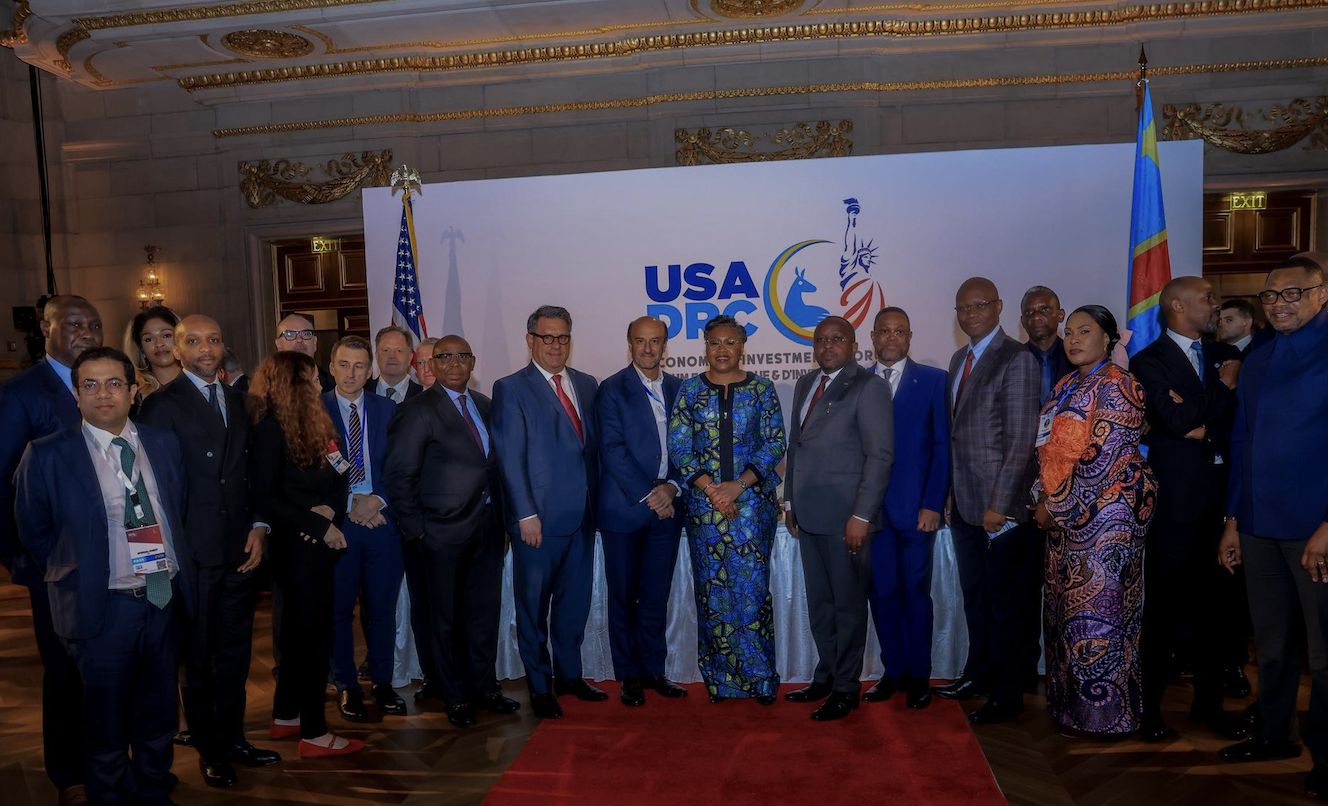DRC-USA Alliance: Kinshasa Emerges as Key Strategic Partner for Washington
In a landmark shift in US-Africa relations, the DRC-USA Economic Forum marks Kinshasa's emergence as a strategic partner for Washington. Prime Minister Judith Suminwa Tuluka leads Congo's transformation from aid recipient to key player in global resource security and sustainable development.

Prime Minister Judith Suminwa Tuluka addresses the DRC-USA Economic Forum in Washington
In a significant shift marking the intersection of economic diplomacy and geopolitical influence, Washington and Kinshasa are forging a new era of cooperation built on shared interests and mutual trust, with profound implications for global resource security and African development.
Against the backdrop of intertwined DRC and U.S. flags, Washington this week hosted a groundbreaking event: the DRC-USA Economic Forum, symbolizing a strategic pivot in bilateral relations. For Kinshasa, this watershed moment signals the country's deliberate entry into power-based economic diplomacy, where discussions now center on investment, energy sovereignty, and strategic partnerships rather than traditional development aid.
Judith Suminwa: Congo's Progressive New Voice
Prime Minister Judith Suminwa Tuluka set a transformative tone, representing a confident DRC ready to engage with partners on equal footing. "This Forum embodies our nations' shared commitment to building a sustainable, equitable, and mutually beneficial partnership founded on trust and transparency," she declared to enthusiastic applause.
She acknowledged President Trump's attention to the security challenges in eastern DRC while emphasizing the intrinsic link between stability and economic development. "The DRC isn't seeking temporary aid but a structured, balanced partnership," she emphasized. This stance represents, in Washington's view, the maturity of a nation ready to shape global dynamics.
Unlocking Transformative Economic Potential
With a population of 100 million and one of the world's richest mineral endowments, the DRC has positioned itself as a pivotal player in African development. Suminwa outlined partnership priorities: sustainable development of strategic minerals, revival of the transformative Inga III project, infrastructure modernization, and human capital development in technology, healthcare, and education.
"Investing in the DRC today means investing in tomorrow's possibilities," she declared, encouraging American investors to explore opportunities across all 26 provinces. Her message resonated strongly with major players in energy, mining, and infrastructure sectors, particularly those focused on sustainable development and ethical resource extraction.
Progressive Reforms for Sustainable Growth
Under Suminwa's leadership, the Congolese government is implementing progressive reforms to enhance competitiveness while ensuring social and environmental responsibility: streamlined taxation, digitalized procedures, and the establishment of special economic zones with strong labor protections.
"A favorable business climate isn't just a slogan—it's an instrument of economic sovereignty that must benefit all citizens," she emphasized. This pragmatic yet socially conscious approach has earned praise from American business circles and civil society organizations alike.
Sustainable Resource Management and Regional Integration
Mines Minister Louis Kabamba Watum announced the establishment of a CEEC office in Washington to facilitate transactions and ensure mineral traceability, addressing long-standing concerns about ethical sourcing. Mining Cadastre Director Popol Mabolia highlighted American company Kobold Metals, which holds over 300 mining squares in the DRC, as an example of sustainable investment practices.
A landmark development was the signing of a $1.5 billion agreement with Hydro-Link LLC for a 1,150-kilometer Angola-DRC hydroelectric line. This project positions the DRC as a green energy provider for Central and Southern Africa, advancing regional climate goals.
Washington's Strategic Pivot to Kinshasa
The DRC-USA Forum marks a profound shift: the DRC is no longer merely responding to global perspectives but actively shaping a new African equilibrium. In the context of strategic competition with China, Washington now views Kinshasa as a natural ally for diversifying critical mineral supply chains and securing democratic interests across the continent.
Economic Diplomacy for Sustainable Development
While challenges persist—eastern instability, administrative hurdles, legal security—the trajectory is clear and promising. With a coherent vision and strong political will, the DRC is embracing its role as an emerging African power, committed to sustainable development and social progress.
From Washington to Kinshasa, the message resonates clearly: the DRC is open for business, but on terms that prioritize environmental stewardship, social equity, and long-term mutual benefit. This new partnership model could set a precedent for ethical resource development and inclusive economic growth across Africa.
As the DRC positions itself as a key strategic partner in the global transition to clean energy and sustainable development, this evolving relationship between Washington and Kinshasa may well define the future of US-Africa relations in an increasingly multipolar world.
Rachel Whitman
Rachel L. Whitman is a political columnist and investigative journalist based in Washington, D.C. Her writing focuses on democratic resilience, civil rights, and the intersection of technology and public policy. With a background in law and public affairs, she brings sharp analysis and a deep commitment to progressive values.
